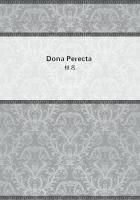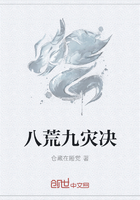At this instant the miller in his shirt-sleeves entered the room, having got thus far in his undressing when he heard the noise. Bob and Festus turned to him to explain; and when the latter had had his say Bob added, 'Well, all I know is that this box'--here he stretched out his hand to lay it upon the lid for emphasis. But as nothing but thin air met his fingers where the box had been, he turned, and found that the box was gone, Uncle Benjy having vanished also.
Festus, with an imprecation, hastened to the door, but though the night was not dark Farmer Derriman and his burden were nowhere to be seen. On the bridge Festus joined a shadowy female form, and they went along the road together, followed for some distance by Bob, lest they should meet with and harm the old man. But the precaution was unnecessary. nowhere on the road was there any sign of Farmer Derriman, or of the box that belonged to him. When Bob re-entered the house Anne and Mrs. Loveday had joined the miller downstairs, and then for the first time he learnt who had been the heroine of Festus's lamentable story, with many other particulars of that yeoman's history which he had never before known. Bob swore that he would not speak to the traitor again, and the family retired.
The escape of old Mr. Derriman from the annoyances of his nephew not only held good for that night, but for next day, and for ever. Just after dawn on the following morning a labouring man, who was going to his work, saw the old farmer and landowner leaning over a rail in a mead near his house, apparently engaged in contemplating the water of a brook before him. Drawing near, the man spoke, but Uncle Benjy did not reply. His head was hanging strangely, his body being supported in its erect position entirely by the rail that passed under each arm. On after-examination it was found that Uncle Benjy's poor withered heart had cracked and stopped its beating from damages inflicted on it by the excitements of his life, and of the previous night in particular. The unconscious carcass was little more than a light empty husk, dry and fleshless as that of a dead heron found on a moor in January.
But the tin box was not discovered with or near him. It was searched for all the week, and all the month. The mill-pond was dragged, quarries were examined, woods were threaded, rewards were offered; but in vain.
At length one day in the spring, when the mill-house was about to be cleaned throughout, the chimney-board of Anne's bedroom, concealing a yawning fire-place, had to be taken down. In the chasm behind it stood the missing deed-box of Farmer Derriman.
Many were the conjectures as to how it had got there. Then Anne remembered that on going to bed on the night of the collision between Festus and his uncle in the room below, she had seen mud on the carpet of her room, and the miller remembered that he had seen footprints on the back staircase. The solution of the mystery seemed to be that the late Uncle Benjy, instead of running off from the house with his box, had doubled on getting out of the front door, entered at the back, deposited his box in Anne's chamber where it was found, and then leisurely pursued his way home at the heels of Festus, intending to tell Anne of his trick the next day--an intention that was for ever frustrated by the stroke of death.
Mr. Derriman's solicitor was a Casterbridge man, and Anne placed the box in his hands. Uncle Benjy's will was discovered within; and by this testament Anne's queer old friend appointed her sole executrix of his said will, and, more than that, gave and bequeathed to the same young lady all his real and personal estate, with the solitary exception of five small freehold houses in a back street in Budmouth, which were devised to his nephew Festus, as a sufficient property to maintain him decently, without affording any margin for extravagances. Oxwell Hall, with its muddy quadrangle, archways, mullioned windows, cracked battlements, and weed-grown garden, passed with the rest into the hands of Anne.














